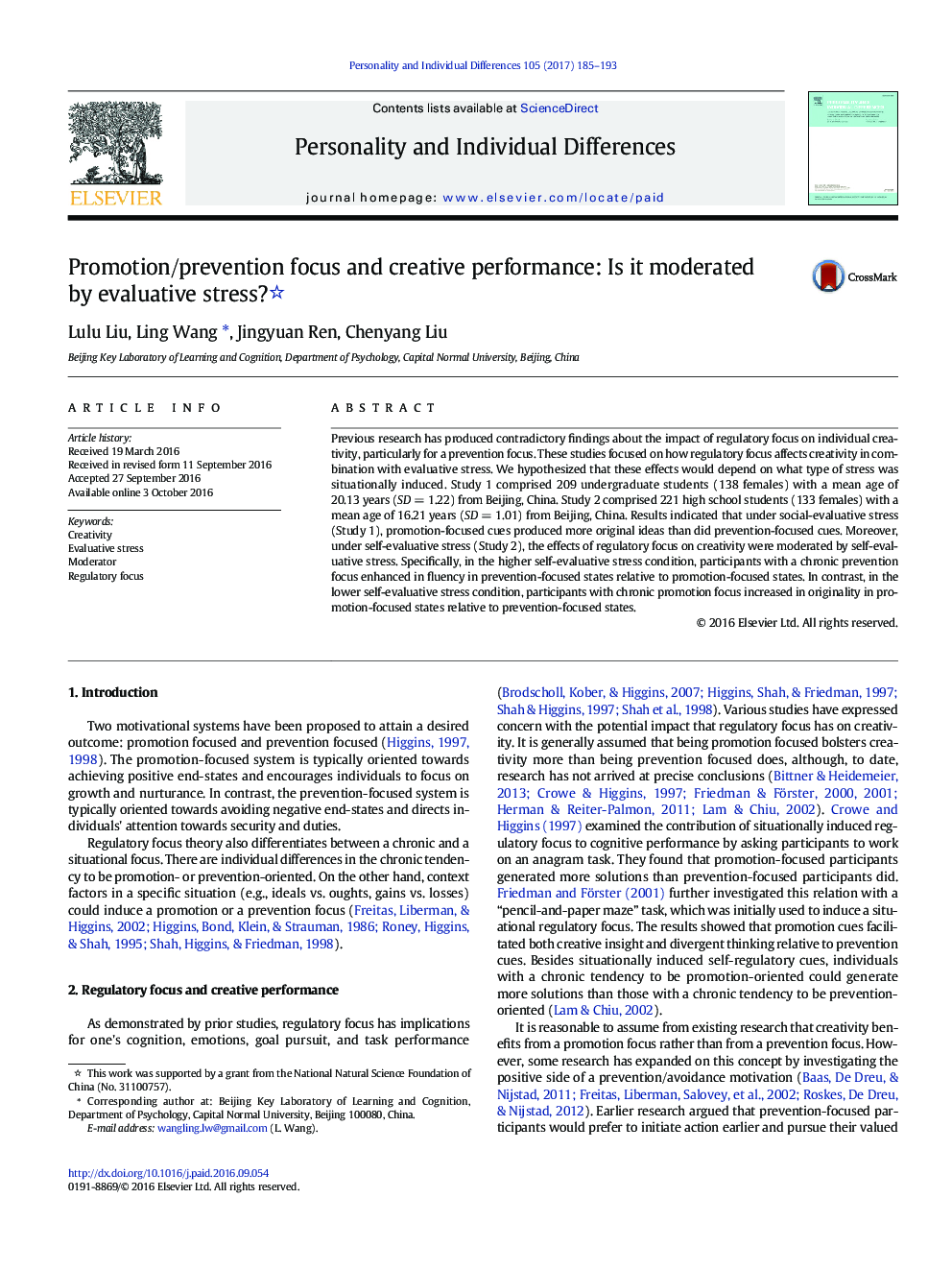| Article ID | Journal | Published Year | Pages | File Type |
|---|---|---|---|---|
| 5036046 | Personality and Individual Differences | 2017 | 9 Pages |
â¢Under social-evaluation, promotion focus is more beneficial to creativity.â¢Self-evaluative stress is a moderator between regulatory focus and creativity.â¢Under self-evaluation, a match of chronic and situational focus increases creativity.
Previous research has produced contradictory findings about the impact of regulatory focus on individual creativity, particularly for a prevention focus. These studies focused on how regulatory focus affects creativity in combination with evaluative stress. We hypothesized that these effects would depend on what type of stress was situationally induced. Study 1 comprised 209 undergraduate students (138 females) with a mean age of 20.13Â years (SDÂ =Â 1.22) from Beijing, China. Study 2 comprised 221 high school students (133 females) with a mean age of 16.21Â years (SDÂ =Â 1.01) from Beijing, China. Results indicated that under social-evaluative stress (Study 1), promotion-focused cues produced more original ideas than did prevention-focused cues. Moreover, under self-evaluative stress (Study 2), the effects of regulatory focus on creativity were moderated by self-evaluative stress. Specifically, in the higher self-evaluative stress condition, participants with a chronic prevention focus enhanced in fluency in prevention-focused states relative to promotion-focused states. In contrast, in the lower self-evaluative stress condition, participants with chronic promotion focus increased in originality in promotion-focused states relative to prevention-focused states.
